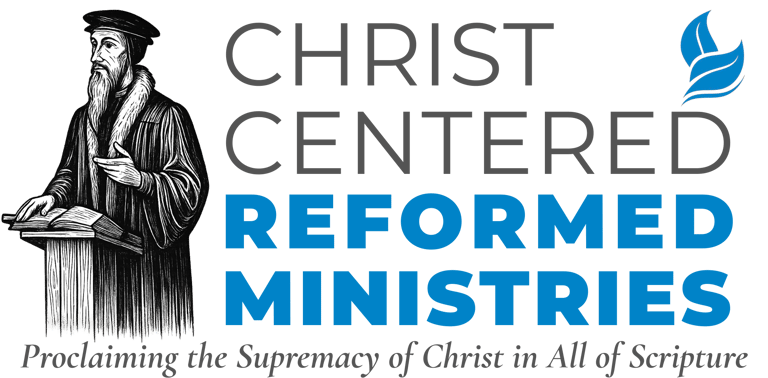The Deity of Christ: A Biblical and Logical Case
This blog post presents a detailed and compelling biblical and logical case for the deity of Jesus Christ, addressing common objections and affirming His divine nature through scriptural evidence and theological reasoning.
Justin Hoke
5/17/20246 min read


Introduction
The deity of Jesus Christ is a cornerstone of Christian faith, underpinning the doctrine of the Trinity and the redemptive work of Christ. Understanding and affirming this truth is crucial for a comprehensive grasp of the gospel and the nature of God. This tract aims to present a detailed, thoughtful, and compelling case for the deity of Christ, grounded in Scripture and logical reasoning. We aim to address common objections and provide a thorough examination of the biblical evidence to convince even the skeptical inquirer.
The Biblical Witness to Christ’s Deity
1. Prophecies of the Old Testament
The Old Testament contains numerous prophecies that point to the coming Messiah as divine. One such prophecy is found in Isaiah 9:6, which declares:
“For to us a child is born, to us a son is given; and the government shall be upon his shoulder, and his name shall be called Wonderful Counselor, Mighty God, Everlasting Father, Prince of Peace.”
This passage clearly ascribes divine titles to the coming Messiah, indicating His deity. The title “Mighty God” is a direct affirmation of the Messiah’s divine nature, something that would be blasphemous if ascribed to a mere human.
Another significant prophecy is found in Micah 5:2:
“But you, O Bethlehem Ephrathah, who are too little to be among the clans of Judah, from you shall come forth for me one who is to be ruler in Israel, whose coming forth is from of old, from ancient days.”
This prophecy points to Jesus’ birthplace and His eternal existence. The phrase “from ancient days” indicates a pre-existence that aligns with divine nature, suggesting that the Messiah existed long before His human birth.
2. New Testament Affirmations
The New Testament provides explicit and implicit affirmations of Christ’s deity. John 1:1-3, 14 offers a foundational statement:
“In the beginning was the Word, and the Word was with God, and the Word was God. He was in the beginning with God. All things were made through him, and without him was not any thing made that was made… And the Word became flesh and dwelt among us, and we have seen his glory, glory as of the only Son from the Father, full of grace and truth.”
Here, John identifies Jesus (the Word) as God and the Creator who became incarnate. The explicit statement “the Word was God” leaves no room for ambiguity about the divine identity of Jesus.
In John 8:58, Jesus Himself declares:
“Truly, truly, I say to you, before Abraham was, I am.”
By using the divine name “I am,” Jesus directly identifies Himself with Yahweh, the God of the Old Testament (Exodus 3:14). This self-identification was understood by His contemporaries as a claim to deity, as evidenced by their reaction to stone Him for blasphemy (John 8:59).
Colossians 1:15-20 provides a comprehensive description of Christ’s divine nature and role:
“He is the image of the invisible God, the firstborn of all creation. For by him all things were created, in heaven and on earth, visible and invisible… For in him all the fullness of God was pleased to dwell.”
Paul describes Jesus as the visible image of the invisible God and emphasizes His role in creation and His divine fullness. The term “firstborn” here signifies preeminence rather than origin, highlighting Jesus’ supreme status over all creation.
3. Divine Titles and Actions
Jesus is attributed with titles and actions that belong exclusively to God. Revelation 22:13 records Jesus saying:
“I am the Alpha and the Omega, the first and the last, the beginning and the end.”
These titles, attributed to God in Isaiah, affirm Jesus’ deity and eternal nature. The use of “Alpha and Omega” encompasses all of existence, a claim that could only be made by one who is divine.
In Acts 20:28, Paul speaks of the church:
“Pay careful attention to yourselves and to all the flock, in which the Holy Spirit has made you overseers, to care for the church of God, which he obtained with his own blood.”
This verse indicates that it was God’s blood, referring to Jesus’ sacrificial death, that purchased the church, affirming His divine nature. The reference to God’s own blood is a powerful affirmation of Jesus’ deity, as only God could provide such a sacrifice.
Titus 2:13 provides another direct statement:
“Waiting for our blessed hope, the appearing of the glory of our great God and Savior Jesus Christ.”
Paul calls Jesus “our great God and Savior,” explicitly affirming His deity. This dual title highlights both the divinity and the salvific work of Christ, leaving no room for misinterpretation.
Addressing Common Objections
1. “Jesus Never Explicitly Claimed to Be God”
Some argue that Jesus never explicitly stated, “I am God.” However, His declarations, actions, and the reactions of those around Him provide clear evidence of His divine self-understanding.
• John 10:30-33: Jesus says, “I and the Father are one.” The Jewish leaders understood this as a claim to deity, as they sought to stone Him for blasphemy, saying, “You, a mere man, claim to be God.”
• Mark 2:5-7: Jesus forgives the sins of a paralytic, prompting the scribes to think, “Who can forgive sins but God alone?” Jesus’ authority to forgive sins is a direct assertion of His divine prerogative.
2. “The Disciples and Early Christians Didn’t Believe Jesus Was God”
The writings of the New Testament, authored by Jesus’ closest followers and their associates, are replete with affirmations of His deity.
• John 20:28: After His resurrection, Thomas addresses Jesus as “My Lord and my God!” Jesus does not correct him, but rather affirms Thomas’s belief.
• 2 Peter 1:1: Peter refers to Jesus as “our God and Savior.”
The early Christians worshipped Jesus and proclaimed Him as divine, despite the severe consequences they faced for such beliefs.
Logical Coherence of Christ’s Deity
1. The Nature of Worship
Worship is due to God alone, yet Jesus accepted worship on multiple occasions (Matthew 14:33, John 9:38). The refusal to rebuke this worship indicates His divine identity. If Jesus were not God, accepting worship would contradict the command to worship God alone (Exodus 20:3-5).
• Matthew 14:33: After Jesus walks on water and calms the storm, the disciples worship Him, saying, “Truly you are the Son of God.”
• John 9:38: The man born blind worships Jesus after being healed, and Jesus accepts this worship without hesitation.
2. The Forgiveness of Sins
Jesus forgave sins, a prerogative belonging solely to God (Mark 2:5-7). The religious leaders understood this and accused Him of blasphemy, recognizing that forgiving sins is an act of divine authority.
• Mark 2:5-7: When Jesus forgives the paralytic’s sins, the scribes question, “Who can forgive sins but God alone?” Jesus then heals the man to demonstrate His authority to forgive sins.
3. Unity with the Father
Jesus’ statements about His unity with the Father (John 10:30) and His prayer for the believers to be one as He and the Father are one (John 17:21-22) reflect a profound and unique relationship that transcends any human or angelic being.
• John 14:9: Jesus tells Philip, “Whoever has seen me has seen the Father.” This statement underscores the perfect unity and representation of God in Jesus.
4. Eternal Existence
Jesus’ claims of eternal existence (John 8:58, Revelation 1:17) align with the nature of God, who is eternal and uncreated. These claims are not compatible with a mere human or created being.
• Revelation 1:17-18: Jesus says, “Fear not, I am the first and the last, and the living one. I died, and behold I am alive forevermore.” This declaration of eternal existence and victory over death is a clear indication of His divine nature.
Conclusion
The biblical and logical evidence for the deity of Christ is compelling and irrefutable. The prophecies, direct affirmations, and divine titles ascribed to Jesus, coupled with His acceptance of worship, authority to forgive sins, unity with the Father, and eternal existence, all point to His true nature as God. As we reflect on these truths, let us be drawn to worship and adore Christ, our great God and Savior, who humbled Himself to become man, that He might redeem us and restore us to fellowship with the Father.
May this understanding deepen our faith, enrich our worship, and compel us to share the gospel with boldness and clarity, affirming the majestic truth of Christ’s deity to a world in need of His saving grace.
For Further Study
Is Jesus God?: The Biblical Case for the Deity of Christ by B.B. Warfield
The Deity of Christ by John MacArthur
The Forgotten Trinity: Recovering the Heart of Christian Belief by James R. White
